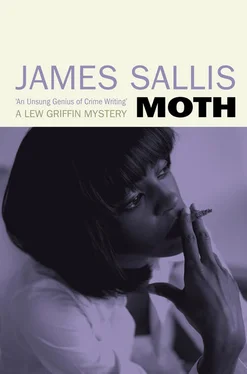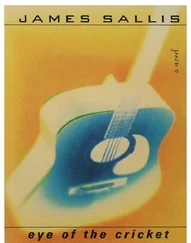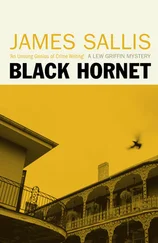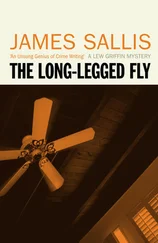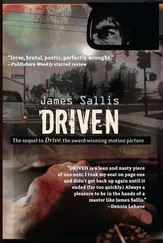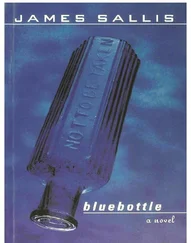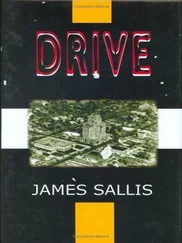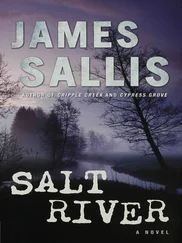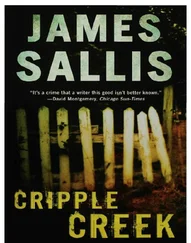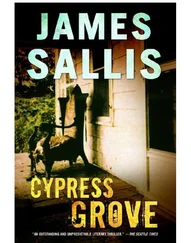James Sallis - Moth
Здесь есть возможность читать онлайн «James Sallis - Moth» весь текст электронной книги совершенно бесплатно (целиком полную версию без сокращений). В некоторых случаях можно слушать аудио, скачать через торрент в формате fb2 и присутствует краткое содержание. Жанр: Криминальный детектив, на английском языке. Описание произведения, (предисловие) а так же отзывы посетителей доступны на портале библиотеки ЛибКат.
- Название:Moth
- Автор:
- Жанр:
- Год:неизвестен
- ISBN:нет данных
- Рейтинг книги:3 / 5. Голосов: 1
-
Избранное:Добавить в избранное
- Отзывы:
-
Ваша оценка:
- 60
- 1
- 2
- 3
- 4
- 5
Moth: краткое содержание, описание и аннотация
Предлагаем к чтению аннотацию, описание, краткое содержание или предисловие (зависит от того, что написал сам автор книги «Moth»). Если вы не нашли необходимую информацию о книге — напишите в комментариях, мы постараемся отыскать её.
Moth — читать онлайн бесплатно полную книгу (весь текст) целиком
Ниже представлен текст книги, разбитый по страницам. Система сохранения места последней прочитанной страницы, позволяет с удобством читать онлайн бесплатно книгу «Moth», без необходимости каждый раз заново искать на чём Вы остановились. Поставьте закладку, и сможете в любой момент перейти на страницу, на которой закончили чтение.
Интервал:
Закладка:
We sat outside at steel tables painted yellow and green, under a sky whose sagging bellies of clouds reminded me of the upholstered walls and draped ceilings of old Russia. Every few moments wind puffed its cheeks and Clare put a hand on her napkin to hold it in place.
“I’m sorry, Lew,” she said suddenly.
I’d been telling her about Alouette’s baby. “It’s for the best.”
She shook her head. A gesture I’d seen often before, when the wrong words came, or when words wouldn’t come at all. “I don’t mean that.”
I looked back at the clouds, lower now. Something was blowing in across the lake, groping for new ground here.
“I don’t know how to say this. I don’t even know what it is I want to say. And I was never good at speeches-even before.”
A sketchy wave touched at the length of her body, hinted at the difficult thing her world had become.
“But I won’t ever understand it, won’t even begin to understand it, if I don’t.”
She moved her fork in a gentle sweep through pasta. There was a fleur-de-lis on the plate, and she had pushed sauteed bits of green pepper into one leaflet of the trefoil, red into another.
“I never wanted anything to work out more than I wanted this, Lew. Not that I ever really thought it would.”
I reached across the table and put my hand over hers.
“Somehow as women we learn to say that all the time: ‘I’m sorry.’ As though it’s our all-purpose social formula, good for any occasion, one size fits all. And a lot of time we’re not sorry at all; we don’t mean to apologize, only to say ‘I understand’ or ‘too bad.’ But right now, that’s exactly what I mean.”
She looked at me, smiled.
“Where do messages like that come from? How can we learn to read them so well without even recognizing that they exist?”
I remembered a poem I’d seen recently in a magazine at Beaucoup Books: We must learn to put our distress signals in code.
“That’s what socialization is, Clare. Most of the messages-maybe all the most important ones-are silent.”
“I guess.”
She took a mouthful of pasta, chewed slowly, sipped at her wine. Pacing herself, making herself hold back. Like a runner, or like a hard drinker taking the first one slow, half convincing himself for the few minutes it lasts that this is only recreational drinking.
“I think I love him, Lew. I think he loves me. And I have to do everything I can to give this a chance. Maybe later on we’ll be able to see one another again, if you want to. But for now … It bothers him, Lew. He doesn’t say anything about it, but I can tell. It hurts him, in some very quiet way he probably doesn’t even know or understand himself. But I see it. And I can’t do that any longer.”
Clenched about her regret and misgivings, her hand had become a small fist beneath mine.
“It’s okay, Clare.”
“No, it’s not okay, Lew, not at all. But it’s how it has to be. Do you think we could go now?”
On the way to her car, wind swirling torn paper wrappers and magnolia leaves around our ankles in tides, I asked how Bat was.
“Gone. I got home last Tuesday and he wasn’t there on top of the refrigerator where he always was. Or anywhere else. I still don’t know how he got out. Or why, for that matter, since he never seemed to have much interest at all in going out. I waited, thinking he’d show up again. Last night I finally admitted he wasn’t coming back and put his things away in the pantry, his bowl and all.”
She unlocked the door and I reached around to open it for her. I told her I was sorry about Bat.
“Life goes on,” she said. We kissed and said goodbye. “I’ll call, Lew. When I can.”
I watched her drive away, holding my hand up in a wave as she took the corner onto Joseph. I walked back, crossed the street and stood for a while in the empty courtyard, looking across at the restaurant with its yellow and green tables and chairs, its laughing, chattering people. I imagined the new apartments going up around me in stop-time, slowly shutting out that world, marooning me here in this ancient, sequestered place.
Chapter Thirty-One
When I got back to the house Alouette was on the phone, as she’d been on the phone pretty much nonstop since the morning before. Thus far she had set up two job interviews, attended another, arranged for information to be mailed concerning GED testing and night classes at Delgado, Xavier and UNO, and spoken with an MHMR counselor about vocational programs. Now she was talking to Richard Garces about outpatient therapy and local support groups.
Not long after I came in, she hung up, scribbled one final note and shut the notebook.
“How’d it go?”
I shrugged.
“That bad, huh?”
“Maybe a little worse.”
“I’m sorry.”
So of course I had to laugh, then explain why.
“Did you know Richard was a hippie? And a junkie? A long time ago, of course.”
“It doesn’t surprise me.”
“Were you a hippie, Lewis? You know, wearing vests without shirts and bell-bottoms and flowers in your hair? Back in the sixties, I mean.”
“What I was in the sixties, mostly, was drunk-at least from about ‘68 on. I didn’t pay a lot of attention to social movements. Or to other people, for that matter.”
“You were a bodyguard then, right?”
I looked up, surprised. Not many people knew about that. Verne had, naturally. And Walsh, because that was how we’d first met.
“I haven’t said anything before, but I know quite a bit about you, Lewis. More than you think.”
I poured tea into my cup, added milk.
“When I was in grade school I had this friend, your classic nerd type, glasses and ugly print shirts, the whole thing, but he was a computer whiz. What everybody calls a hacker now. He was really weird. Look, this is kind of a long story.”
“I’ll drink slowly.”
“And probably a dull one.”
“About me? Impossible.”
“Yeah, right. Well anyway, Cornell’s dad was an engineer with IBM or Apple or someone, and he always had these new computers around the house, products they were developing, or marketing. Cornell told me he grew up with these things as playmates instead of other kids. He thought everybody did. And he could do anything he wanted with them.
“I was twelve or thirteen. And I just decided one day that my father couldn’t really be my father. Mother was gone, I was hopelessly miserable. I couldn’t talk to him, or to anyone else in the house, and I knew there was just no way I belonged there.”
“Most children go through that at some point.”
“I know that, now. I think I kind of knew it even then. I was never lucky enough to be stupid.”
“But you had to set yourself apart.”
She nodded. “And I knew a little about you, just from things I’d heard. So I decided you had to be my father. It made a lot of sense at the time; it was the only thing that did. This was about when Cornell and I started being friends. Neither of us had ever had friends before, and I can’t remember now how it happened, but somehow he started coming over after school, spending recess and lunch hour with me. One afternoon we sneaked into this office my father had at home, though I wasn’t ever supposed to be in there, and Cornell showed me how to use the computer. If you knew how, you could dial into all kinds of information banks, he told me; you could find out almost anything you wanted to know.
“I thought about that for days. Then the next Saturday when Cornell came over-my father was at work, as usual-I told him about you. What little I knew, and a lot more I made up. And Monday he brought me this folder full of stuff. Copies of official forms, printouts of what I guess had been newspaper articles, parts of some kind of dossier the FBI had on you. That one said you killed a man.”
Читать дальшеИнтервал:
Закладка:
Похожие книги на «Moth»
Представляем Вашему вниманию похожие книги на «Moth» списком для выбора. Мы отобрали схожую по названию и смыслу литературу в надежде предоставить читателям больше вариантов отыскать новые, интересные, ещё непрочитанные произведения.
Обсуждение, отзывы о книге «Moth» и просто собственные мнения читателей. Оставьте ваши комментарии, напишите, что Вы думаете о произведении, его смысле или главных героях. Укажите что конкретно понравилось, а что нет, и почему Вы так считаете.
